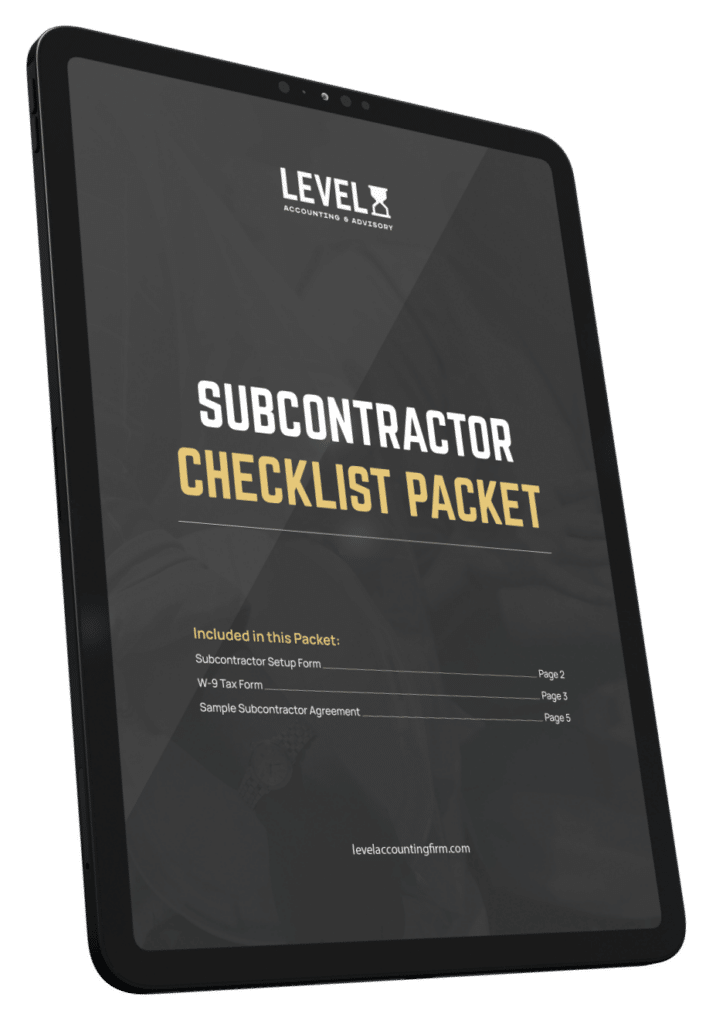Learn how to write off your vehicle for taxes. Discover eligible expenses, calculation methods, and tips to maximize your deductions while staying compliant.
Are you a business owner or self-employed individual looking to save some money on your taxes? There’s a lot of information out there about what you can and can’t do when it comes to writing off your vehicle for taxes. Don’t worry, we’re going to simplify it and tell you everything you need to know.
What Does It Mean to Write Off Your Vehicle for Taxes?
First things first, let’s break down what we mean by “write off your vehicle for taxes.” Essentially, it’s a way to deduct vehicle-related expenses from your taxable income. This means you pay less in taxes overall. Sounds good, right? But before you start doing victory laps around your driveway, let’s go over the details, so you can do it the right way.
Who Can Write Off Their Vehicle?
Not everyone can write off their vehicle expenses. Generally, you need to use your vehicle for business purposes. This includes:
- Self-employed individuals
- Business owners
- Independent contractors
- Employees who use their personal vehicle for work (with some restrictions)
If you’re just commuting to and from your 9-to-5 job, sorry to be the bearer of bad news, but that doesn’t count as a business expense. Nice try, though!
What Vehicle Expenses Can You Write Off?
Now, let’s talk about what you can actually write off. Here’s a list of common vehicle expenses that are typically deductible:
- Gas and oil
- Maintenance and repairs
- Tires
- Insurance
- Registration fees
- Lease payments
- Depreciation (if you own the vehicle)
- Parking fees and tolls for business trips
Remember, you can only deduct the portion of these expenses that relate to business use. So, if you use your car 50% for business and 50% for personal use, you can only deduct 50% of your expenses.
Methods for Writing Off Vehicle Expenses
There are two main methods for writing off your vehicle expenses: the Standard Mileage Rate method and the Actual Expense method. Let’s break them down:

Standard Mileage Rate Method For Vehicle Write Offs
This is the simpler option. Here’s how it works:
- Keep track of your business miles driven throughout the year.
- Multiply your business miles by the standard mileage rate set by the IRS.
For example, in 2023, the standard mileage rate is 65.5 cents per mile. So, if you drove 10,000 business miles, your deduction (or vehicle write off) would be $6,550 (10,000 x $0.655).
Pros of this method:
- Easy to calculate
- There are apps to track your miles that make record collection simple
- Often results in a larger deduction for newer vehicles
Cons:
- Might result in a smaller deduction for older vehicles or those with high operating costs
Actual Expense Method

This method involves tracking all your actual vehicle expenses throughout the year so you can write them off. Here’s what you need to do:
- Keep detailed records of all vehicle-related expenses.
- Calculate the percentage of miles driven for business purposes.
- Apply that percentage to your total vehicle expenses.
For example, if your total vehicle expenses were $10,000 and you used your car 60% for business, your deduction would be $6,000 ($10,000 x 60%).
Pros of this method:
- Can result in a larger deduction, especially for older vehicles or those with high operating costs
- Allows you to deduct actual expenses, which might feel more accurate
Cons:
- Requires detailed record-keeping (such as receipts)
- Can be more complicated to calculate
Which Method Should You Choose?
Good question! The best method for you depends on your specific situation. Here are some factors to consider:
- Age and cost of your vehicle: Newer, more expensive cars often benefit from the standard mileage rate.
- Operating costs: If your vehicle is a gas guzzler or requires frequent repairs, the actual expense method might be better.
- Business use percentage: If you use your car primarily for business, the actual expense method could result in a larger deduction.
- Your tolerance for record-keeping: If you hate paperwork, the standard mileage rate might be your new best friend. But don’t forget – you still need meticulous records of the miles driven for work.
Pro tip: In your first year of business use for a vehicle, you can choose either method. But if you want the option to switch between methods in future years, you must use the standard mileage rate in the first year. So, choose wisely.
Record-Keeping: The Not-So-Fun (But Super Important) Part

I know, I know. Record-keeping isn’t exactly thrilling. But trust me, it’s crucial if you want to write off your vehicle expenses without raising eyebrows at the IRS. Here’s what you need to track:
For both methods:
- Date of each trip
- Destination
- Business purpose
- Miles driven
For the actual expense method, also track:
- All vehicle-related expenses (keep those receipts!)
- Total miles driven for the year (business and personal)
Consider using a mileage tracking app to make your life easier. Your future self will thank you when tax time rolls around. Here is a list of our favorite mileage tracking apps.
Special Situations: When the Rules Get a Little Tricky
Life isn’t always straightforward, and neither are tax rules. Here are a few special situations to be aware of:
Leased Vehicles
If you lease your vehicle, you can still write off expenses, but there are a few extra rules:
- You can use either the standard mileage rate or actual expense method.
- If you use the actual expense method, you can deduct the portion of each lease payment that corresponds to your business use percentage.
- Be aware of the “lease inclusion amount” which might reduce your deduction for expensive leased vehicles.
Multiple Vehicles

If you use multiple vehicles for your business, you can:
- Use the standard mileage rate for one vehicle and the actual expense method for the others, or
- Use the actual expense method for all vehicles.
Just remember, you can’t use the standard mileage rate for multiple vehicles in the same year.
Vehicle Used for Both Business and Personal
If you use your vehicle for both business and personal purposes, you’ll need to calculate the percentage of business use. Here’s a simple formula:
Business use percentage = (Business miles driven / Total miles driven) x 100
Only the business use percentage of your expenses is deductible.
Here is a helpful calculator to calculate your mileage deduction.
Common Mistakes to Avoid
Even the best drivers make wrong turns sometimes. Here are some common mistakes to avoid when writing off your vehicle:
- Claiming 100% business use: Unless your vehicle is used exclusively for business (and you have another vehicle for personal use), this is a red flag for the IRS.
- Forgetting to track mileage: Start tracking from day one. Your memory isn’t as good as you think it is!
- Not keeping receipts: If you’re using the actual expense method, receipts are your best friend. Don’t throw them away!
- Deducting commuting miles: Remember, your regular commute to your primary workplace isn’t deductible.
- Using the wrong method: Make sure you’re using the method that gives you the biggest legitimate deduction.
Maximizing Your Vehicle Tax Write-Off
Want to get the most out of your vehicle expenses? Here are some tips:
- Be diligent about tracking: The more accurate your records, the more you can potentially deduct.
- Consider business-related vehicle upgrades: If you need to make modifications to your vehicle for business purposes, these costs may be deductible.
- Don’t forget about parking and tolls: These are deductible in addition to your standard mileage rate or actual expenses.
- Plan your routes efficiently: Combining multiple business trips can increase your deductible mileage.
- Stay informed about rate changes: The IRS sometimes adjusts the standard mileage rate mid-year due to fuel price fluctuations.
Wrapping Up: The Road to Tax Savings
Writing off your vehicle for taxes might seem like a long and winding road, but it’s worth the journey. By understanding the rules, keeping good records, and choosing the right method for your situation, you can potentially save a significant amount on your taxes.
Remember, tax laws can change, and everyone’s situation is unique. While this guide gives you a good starting point, it’s always a good idea to consult with a tax professional for personalized advice. They can help you navigate any potholes and ensure you’re on the right track.
So, the next time you hop in your car for a business trip, remember: you’re not just driving, you’re potentially saving on taxes. And if you need help figuring out how to deduct your vehicle most efficiently, book a call with us.
Like this post? Check out our other blogs:
- 1099 vs W2: What Contractors Need to Know About Hiring
- BOI Reports: Your How To Guide to Filing
- Cash vs Accrual Accounting for Construction Businesses
- 1099s: Everything Contractors Need to Know
- Why Should Contractors Consider an S-Corp Election
- How to Pay Yourself as an S-Corp Owner
- More can be found Here
Disclaimer: This article provides general information and should not be construed as tax, legal, or accounting advice. Always consult qualified professionals for guidance specific to your situation.


